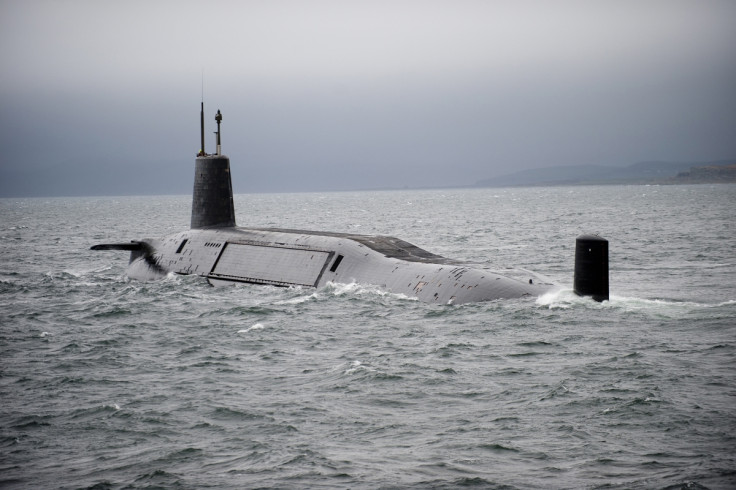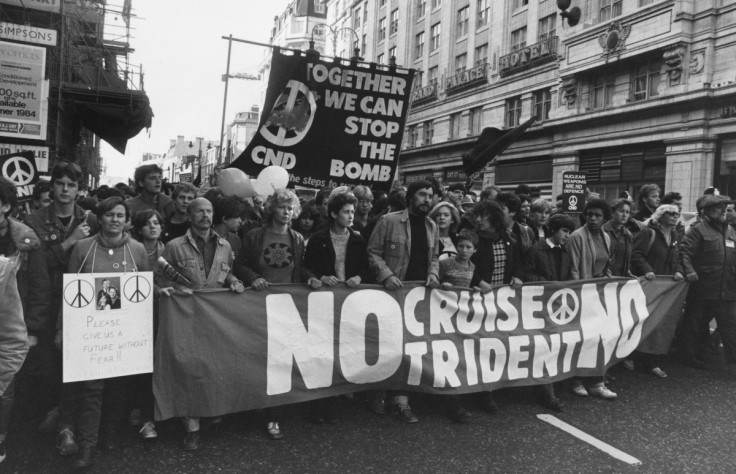Stop Trident rally: People have died from cuts, but we can afford £183bn on nuclear weapons?

Love it or hate it, there's no doubt that Trident is at the top of the political agenda. As this weekend's demonstration shows, the future of Britain's nuclear weapons is a matter of huge popular concern across the political spectrum, from all parts of Britain and from all walks of life.
The forthcoming decision on whether or not to replace Trident replacement – expected in parliament this year – has concentrated political minds. Big political factors are certainly at play. The opposition of the Scottish parliament puts a massive spanner in the works as Scotland is the host country to the weapons system. The election of life-long CND member Jeremy Corbyn to the Labour leadership with a massive anti-Trident mandate presents the possibility of a Labour policy change.
The government has contributed in its own way to raising the profile. Publication of its new Strategic Defence Review included the news that the manufacturing cost of the four replacement submarines is now expected to be £41bn ($58.6bn) rather than £25bn. They put this as £31bn plus a £10bn contingency which, on past record, means they'll be spending £41bn at least. Taken together with government figures for calculating the lifetime cost, it looks like the whole sorry project will cost at least £183bn. At a time of swingeing government spending cuts this is clearly outrageous.
To reduce our national security to a 'will-they/won't-they press the button' game of bluff is plainly absurd.
Some might argue that if this makes Britain more secure, then it is worth spending the money. The problem is that by the government's own evaluation, Trident does nothing to meet our current security threats. The updated National Security Risk Assessment shows Tier One threats as terrorism, cyber attack, pandemics, natural hazards – ie, climate change – and so on.
Nuclear attack resides at Tier Two, yet Trident remains a government priority in spite of hoovering up vast amounts of money that could be better spent meeting real security priorities. Small wonder some senior military figures say that Trident should be scrapped – they would prefer the money spent on usable military equipment.

Interestingly, serious concerns have now been expressed about the security of Trident itself. Former Labour defence secretary Lord Des Browne – who helped Tony Blair push the first step towards Trident replacement through Parliament in 2007 – has pointed out that a cyber attack could render Trident obsolete. And industry experts agreed that "any national public or private infrastructure service or defence facility" could be hacked. Disturbing stuff.
The fact is, this is a twentieth-century system, and it looks and acts like one. When those subs were first built they were undetectable under water so enemies never knew where they were. How can that possibly be the case in the twenty-first century? What about under-water drones? This is old technology, and updating it is not going to offset these huge security risks.
The onus now is on those who want to replace Trident to explain why it is a good idea. The usual line from our government is that possessing nuclear weapons makes us safe, but the illogic of this was actually revealed recently by the foreign secretary, Philip Hammond. Referring to the North Korean missile test, he said:
'North Korea seem to think possessing a nuclear weapon makes them safe. In fact it's the opposite. Having a nuclear weapon makes them a target.'
And of course having Trident makes us a target.
Those who back Trident must now start to take their own arguments a bit more seriously. It's not enough to describe Trident as an "insurance policy". Insurance policies pay out after the worst has happened. They don't prevent it.
And what about the "deterrent' word?"This seems to rely on our enemies not knowing whether or not we would press the nuclear button or when. To reduce our national security to a 'will-they/won't-they press the button' game of bluff is plainly absurd.
The reality is that fewer and fewer people are convinced by the case for nuclear weapons. Stopping Trident is not a fringe demand, it is not a minority protest. Stopping Trident is the new common sense. It's the rational voice. Today's mobilisation demonstrates this is a demand from across society, from every corner of our country, from every age, faith and walk of life. It's time for government to listen.
Kate Hudson has been General Secretary of the Campaign for Nuclear Disarmamentsince September 2010
© Copyright IBTimes 2025. All rights reserved.





















